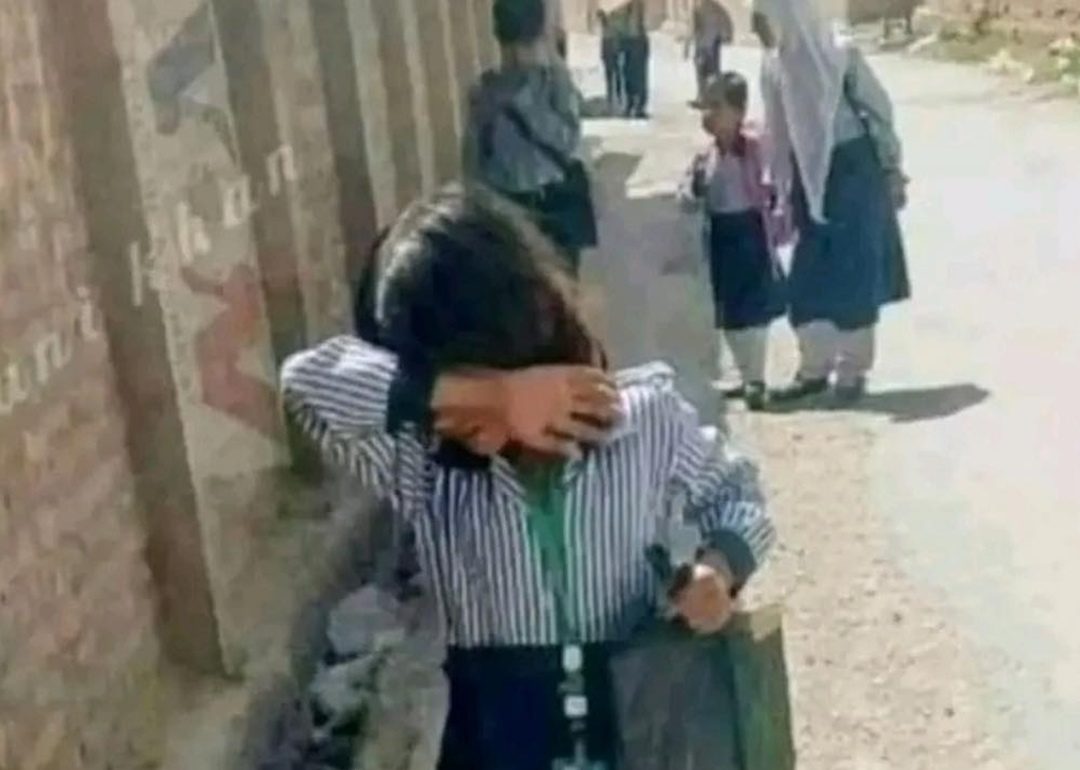The Girl and the Colored Pencils: A Lesson in Kindness and Hope

On a quiet afternoon, a little girl no more than ten years old walked into a small, local bookstore. Her steps were hesitant yet determined, and in her tiny hand, she clutched a few crumpled notes—the sum total of whatever money she could gather. Her eyes darted nervously across the shelves, scanning the array of supplies, her small frame almost swallowed by the aisles.

She first picked up a simple pencil and a notebook—bare essentials, enough to complete her schoolwork. But then, with a shy glance around the store, she paused at a packet of colored pencils. Her fingers hovered over them, trembling slightly. She looked at the shopkeeper, her eyes wide, and in a voice that quivered yet carried determination, said:
“Uncle, I really need them. My teacher scolds me because I don’t have any. I don’t have enough money… but I’ll pay you little by little.”
The shopkeeper, an older man who had seen countless customers come and go, felt a lump form in his throat. There was something in her words—an innocence mixed with desperation—that stirred something deep inside him. He could see the sincerity in her expression, the hope that this small packet of colored pencils represented more than crayons; it was a lifeline. Without hesitation, he handed the packet to her, speaking gently, his voice carrying both caution and care:
“Beta, take them. But don’t ever ask like this again—there are cruel people in the world. Be careful.”
The girl’s face immediately lit up in a smile so bright it seemed to illuminate the room. She clutched the pencils tightly, promising to return the money, before skipping away with a bounce in her step. For her, this was not just a packet of colored pencils—it was a small victory, a spark of hope, and a signal that someone cared.
The shopkeeper remained standing behind the counter, frozen in thought. What if she had asked the wrong person? What if she had been turned away, scolded, or laughed at? The impact of that small act weighed heavily on him. He realized that kindness, when given freely, could shape a life in ways that money or words alone never could.
This story is about far more than colored pencils. It is about children whose families struggle to afford even the most basic tools for education. It is about the silent battles they fight every day—battles that are invisible to teachers, neighbors, and even friends. Many children attend school with worn shoes, torn uniforms, or no supplies at all. And often, when they falter in class or struggle with assignments, the world mistakes necessity for neglect.
Teachers and adults alike can learn from this moment. Before scolding, before judging, pause. Consider that what appears to be laziness or defiance may actually be a reflection of poverty, fear, or need. Sometimes all a child requires is one person to see them, to understand them, and to respond with compassion rather than criticism.
The ripple effect of this simple act of kindness is immeasurable. The little girl walked out of the store with a smile and a sense of dignity. For the rest of the day, she likely felt a renewed sense of hope, pride, and confidence. That single encounter may influence the way she approaches challenges, the way she interacts with others, and the way she believes in herself.
Stories like hers remind us that even the smallest gestures—buying a packet of colored pencils, offering encouragement, or listening without judgment—can alter the trajectory of a child’s life. The power of belief, patience, and kindness is far greater than most of us realize.

In a world that can often be harsh, dismissive, or impatient, one act of generosity can become a lifeline. The shopkeeper’s decision to help her, instead of walking away or saying “no,” changed the course of her day and perhaps her future. It’s a reminder that sometimes, the simplest choices—rooted in empathy—have the deepest impact.
This story is a call to action for all of us: notice the quiet struggles around you, respond when you can, and, when necessary, withhold judgment. Sometimes all a child needs is one person to believe in them. And sometimes, just sometimes, that belief can illuminate an entire lifetime.
Because kindness is never wasted. The girl and her colored pencils remind us that hope, dignity, and opportunity often start with one simple act—and that small acts can grow into stories of lasting impact.











